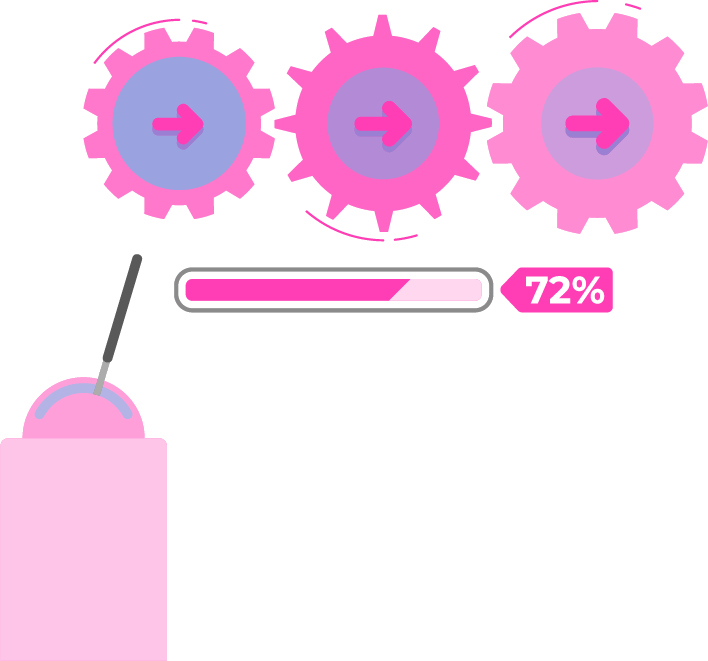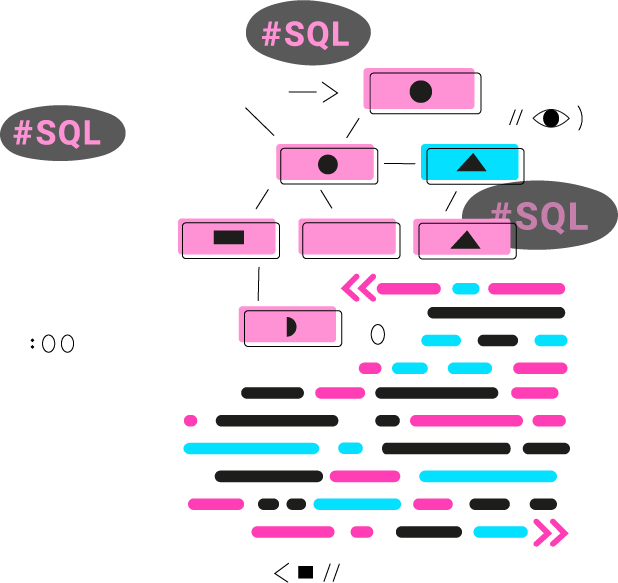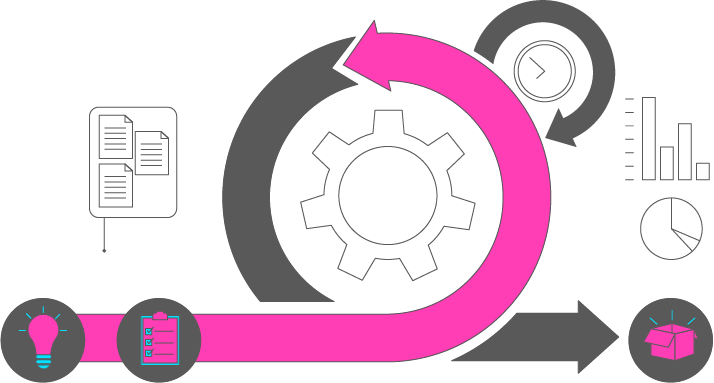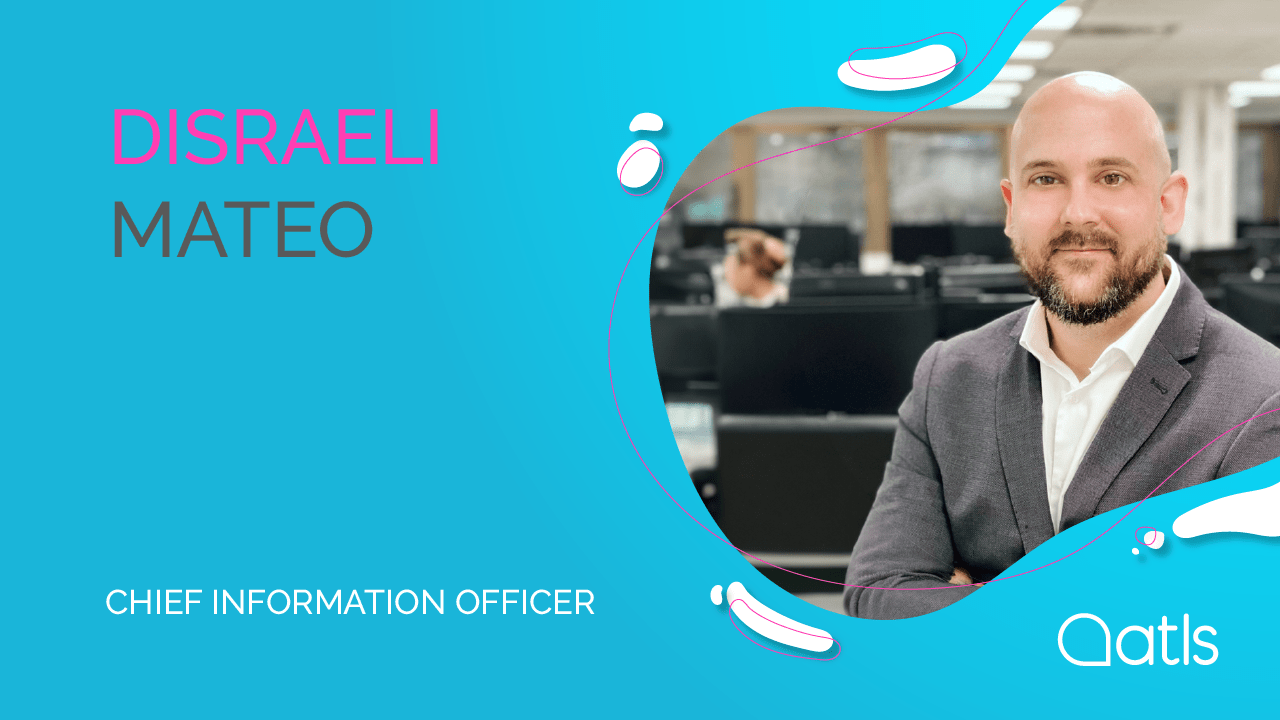Changes in Google's algorithm: how to prevent any negative impacts

Keywords: Google algorithm, how does Google work, Google ranking, search results, core update, Google search ranking algorithm
Nobody wants to see their hard work quashed by a Google algorithm update. To make sure you don't, remind yourself that Google isn't some school bully you need to be afraid of. It's a tool, and it prefers the kind of content you prefer too: human, and high quality. If you want the God of Search to work for you, the best thing you can do is create an SEO strategy tailored to your specific needs, and based on two key points: don't get obsessed with technical details or ranking tricks. Instead, produce high quality, original content, made by - and for - people.
You could almost think of Google's algorithm as a key doctrine of the church of the digital era: nobody really understands it as a whole, but everyone accepts it and tries to benefit from it - or at least not to be punished by this all-encompassing, practically godlike force of nature.
Meanwhile, back on the earthly plane, things aren't as complicated as they seem. Google's search ranking algorithm gets to decide the level of visibility every page gets on the world wide web. And your job is making sure you get on the first few pages. That's it. But then a Google core update comes along, and it all changes... So, what is it, and how does it affect you? We'll tell you.
How does the September 2023 Google algorithm work?
- How does Google work?
- Google algorithm update? What is it and how does it work?
- Why is it so important to know all about these Google algorithm updates?
- Let's take a look at the most significant Google algorithm updates in history
- What are the March and August 2023 core updates all about?
- How can you tell if a Google algorithm update has a negative impact on you?
- How can you work with web content to ensure you aren't adversely affected by updates?
- What is E-E-A-T?
- Do you need help to improve your company's visibility?
How does Google work?
It might not be the only search engine out there (and it's not even the most popular in some countries), but understanding how Google works is crucial. Once you know, you'll be able to see how it affects search results and your Google ranking. You can read the official and complete explanation from the folk over at Mountain View here, but here's our three-paragraph summary:
- It all starts with Google's so-called crawlers: these bots explore the internet, searching for and downloading websites and content (texts, images, metadata, etc.). And they do it periodically, which means they can detect new additions or changes.
- The second phase is called indexing, which is when Google analyses the contents. What is the subject of the website? Is the content relevant and valuable, or does it contain duplicated information? Does the design facilitate browsing and a strong user experience?
- Finally, it's time to publish the results; when someone searches for something, the results appear in a particular order. The order depends on literally hundreds of factors (which is precisely the job of the Google search ranking).
So, now we're getting to the crux of it: the Google algorithm, which decides which position each website will appear in for each specific search. Now, let's dig a little deeper into the workings of the world's most famous algorithm.
Google algorithm update? What is it and how does it work?
If you want to understand how Google works, you need to know how the Google algorithm works: why and how does it present the Google search results in a particular order?
What is the Google algorithm? In brief, it's the set of standards and criteria the Googlebot takes into account when making decisions on SEO positioning.These criteria are measured in different ways and weighted differently when establishing the Google ranking; something that, of course, changes over time.
You could look at is as an incredibly complicated mathematical formula, based on a huge range of elements (the 'ranking factors'). Nobody knows every single one of these factors, how important they are, or how they influence each other, but some of the classics are definitely worth a mention, such as:
- Keywords: if a website talks about cat films, words and phrases like 'cat movies' should appear, right?
- Links: the super smart Google algorithm knows whether the links are relevant (do they relate to cats?) and have authority (they point to 'serious' film websites).
- Updated: if five new cat films have been released in the past two years, and your website mentions them all, Google will value it.
- Language and location: logically, users are from different places and speak different languages. They won't search for the same thing, and they won't search in the same way.
We've said it before, and we'll say it again and again: Google's algorithm is constantly changing in order to offer quality content. An example: years ago (back in SEO prehistory) developers and creators told us "OK, so Google likes keywords, let's include hundreds"; but Google soon worked out the 'keyword stuffing strategy' and began to penalise it.
Why is it so important to know all about these Google algorithm updates?
Google's algorithm is like all the rest: constantly evolving to the tune of technological potential, website features, user interests and search styles. And if the algorithm changes, the ranking conditions of your website change - along with users' search results.
It follows that anyone who wants to keep their internet presence highly visible needs to stay abreast of all the developments in Google's algorithm. A lot of the time these are minor tweaks with a relatively insignificant impact, but at times, they could be major updates. Or, as Google puts it, core updates.
How can Google's core updates affect my website?
Simply: a few positions higher or lower in the Google ranking. If you make sure your website is in tune with the criteria implemented in the September core update, you'll go up; and if you don't, you'll go down.
Google makes a point of actively and passively warning us that core updates shouldn't necessarily generate problems with your website's ranking; it could be a simple case of the Google page ranking making other pages go up. Generally speaking, as long as you don't go against the house rules on spam, there isn't anything you need to correct.
In any case, ranking changes don't happen overnight (even Google would struggle to read the whole internet that quickly). So for good or bad, if you change something and your ranking doesn't improve straight away, that's fine. SEO has always been more of an endurance race than a sprint.
Let's take a look at the most significant Google algorithm updates in history
The best way to understand what Google's algorithm really wants from us is to look back through its lineage and pick out some of the most important updates in its history.
Google Panda
It first appeared back in 2011, and was a revolution in the search for high quality websites; more than 10% of websites were affected. One highlight of the 23 key points was a modifier that placed value on backlinks, reference requests and search requests. Websites engaged in 'scraping' other websites and ad-heavy websites lost a lot of visibility.
Google Penguin
Next on the list was the Google Penguin algorithm in 2012, which aimed to control the underhand tactic of increasing the number of backlinks that Panda was so fond of (spamdexing). This included things like buying/selling or swapping links, linking to websites with authority but no relevance... things like that.
Google Hummingbird
Appeared on the scene in 2013, putting speed and precision first in the search results. This is the first update to value natural language (with the context and meaning being more important than keywords). Indexing would never be the same again after the hummingbird landed.
Google Pigeon
The next core update struck in 2014, aiming to optimise local searches in the Google ranking. Here's a typical example: when you're looking for a "Chinese restaurant", you probably don't mean restaurants in China, you're looking for local. Location and distance were decisive factors for the engines, and local directories were favoured.
Google RankBrain
The following year saw the arrival of artificial intelligence with RankBrain; as urban legend has it, this is the third most important thing for Google ranking. Long tail searches came along (a chain of keywords), and finally, the engines stopped ignoring short words (of, and, in, etc.). Google was starting to better understand humans.
Google YMYL
With the Your Money or Your Life core update, the Google algorithm learned that you shouldn't play with your food - or your health. In other words, pages related to topics affecting the physical or financial security of users (online transactions, official information, health data) must contain more accurate information. It appeared in 2018.
Google BERT
The Bidrectional Encoder Representations from Transformers appeared just a few months later. This deep learning architecture is particularly good at differentiating meaning according to context, understanding relationships between clauses and predicting missing terms. This is all essential to understanding real human language and producing more accurate search results.
Core Web Vitals
CWVs (Core Web Vitals) landed in 2021, and are a something of a new revolution. This set of three metrics takes into account various factors related to website usability and the user experience: loading speed, page responsiveness and visual stability. If your website loads fast, Google's going to love it.
Helpful Content
This update dates back to 2022 and represents a stepping-up of one of Google's original principles: to prevent web pages being designed and content being created solely for page ranking. In this sense, it attempts to detect generalist content from third parties, mass automation, and out-and-out scraping...
What are the March and August 2023 Google core updates all about?
This brings us to the latest core updates. These updates have prompted all and sundry to revise their strategic principles and technical parameters on Google Search in 2023, because of the sheer impact they've had on the SERP.
But before we all start running around like headless chickens, let's step back and make an observation: Google's algorithm is not 'Evil'; and it isn't here to bring your world crashing down. Generally speaking, if your SEO strategy is of the 'healthy and organic' variety, you have nothing to fear, although there may be some things you need - or want - to adapt and improve.
Overall (we'll go deeper later), these two updates mostly affect the ranking of product reviews and searches from mobile devices. And they affect all regions and all languages (especially relevant for international SEO). The most affected features seem to be Google Discover and rich snippets.
What elements does the latest Google update take into account?
This latest update took place on 7 September 2023 and is no revolution in terms of how Google works; after all, it simply follows the previous trend of prioritising content created by and for human beings.
Increasingly, the Google algorithm is focused on three essential objectives or principles:
- Relevant, accurate and updated content.
- Responsive pages with high levels of usability.
- Organic SEO optimisation.
Another important thing to note is that the Google algorithm is starting to use generative artificial intelligence in search results. You can read more here, but for the time being there's little to do in this regard aside from help to experiment.
How does the latest Google algorithm work?
As we've said, whilst the inner workings of the Google algorithm remain a mystery, we do have certain clues. What we can clearly see is the effect Google's website ranking algorithm has on the SERP - or search engine results pages.
The first thing SEO specialists have noticed in recent weeks is a high level of volatility; in other words, the changes to Google's algorithm have significantly altered the ranking of web pages. This is often the case with every update - it takes a while for the changes to 'settle'.
On the other hand, the changes in terms of moving up or down the rankings have actually been described as 'micro' (representing around 2.5 positions in March). In other words, the new Google algorithm isn't about to make your website disappear off the face of the internet; rather, you should expect some relatively moderate changes.
How can you tell if a Google algorithm update has a negative impact on you?
Is the latest Google core update the source of your woes, or is something else getting in the way of your results? It's a common dilemma for any webmaster. The Google Search Status Dashboard is a good place to start if you want to get to the bottom of it. Specifically, the Ranking section. This will tell you whether you should be suspicious of the Google algorithm (the changes that is).
Because whilst the Google algorithm doesn't directly affect you negatively, if it has a positive effect on the competition - and not you - it's the same outcome: you go down the ranking. It means you need to review your website, structure and content to align it with the latest guidelines.
What to do if you've been penalised
If the problem does stem from the new Google website ranking algorithm, you need to get to work on it and make some changes. Go slowly but surely: Google often say the changes won't have an immediate impact, but you should still act relatively quickly (after all, you never know when you're going to get a visit from a cracker).
Either way, knowing how Google works, there are two aspects you need to analyse in meticulous detail (yes, we'll say it again):
- That your website architecture is correct (with a sitemap, robot.txt, URL and redirection, tags, metadata, etc.).
- That your website content is... as we'll explain below.
How can you work with web content to ensure you aren't adversely affected by updates?
Let's start with the basics. You and Google don't want the same thing. You want your web page to get the best page ranking and appear right at the top of the list; Google wants users to find what they're looking for (information, products, news, businesses, locations, etc.). So, you need to assume that when it comes to the Google algorithm, Google is in charge, and we're the ones who need to adapt.
If there's one truism in the world of SEO, it's that content is king. Cliché or not, we're pretty pleased that increasingly, the search algorithm is placing value on what a lot of us have been doing for years: creating content for people, written by people, who know what they're talking about, and know how to tell it.
And that's it, there really aren't any more secrets to tell. Of course, it might take more time and effort than the other types of SEO shortcuts - we're talking about trying to outsmart the Google algorithm and create content to please the machine - but it's much more effective in the medium to long-term.
What is E-E-A-T?
Google explains how to create quality content explicitly here, leaving no stone unturned, with a whole barrage of questions to ask yourself. As you can see, it's not about creating content just so the crawlers will find it; it's quite the opposite. No doubt you've heard of E-E-A-T?
- Experience. Write about the things you have first-hand knowledge of; whether product reviews or travel tips. This is the 'novelty' in these guidelines.
- Expertise. Have you heard the saying 'Jack of all trades, master of none'? Well Google likes masters. It's the best way of avoiding being superficial.
- Authoritativeness. Reputation carries a great weight for Google. Standards matter - seeing something quoted on Encyclopaedia Britannica is very different to a dubious-sounding website.
- Trustworthiness. Ultimately, this is the most important thing: that the content is trustworthy and reliable. In other words, not lacking in truth- whether data or other truths.
Find out whether your website content falls within Google's search algorithm requirements
If you're not familiar with this process as a whole, you might find coming up with your own diagnosis and plan of action pretty laborious. That's where we at ATLS can help. That way, you can find out the problem and know what you need to do to solve it.
Do you need help to improve your company's visibility?
As you'll have seen, the relationship between Google's search ranking algorithm and Google search results is complex; making a few touch-ups here and there isn't enough; nor is having a corporate blog to fill up space and look good.
Have you got a corporate or commercial website, and noticed you're having issues with online visibility, especially at an international level? We can help you narrow down your audience, establish your international ranking criteria, and localise your content to optimise your results.
If you are interested in improving your SEO ranking, get in touch!







